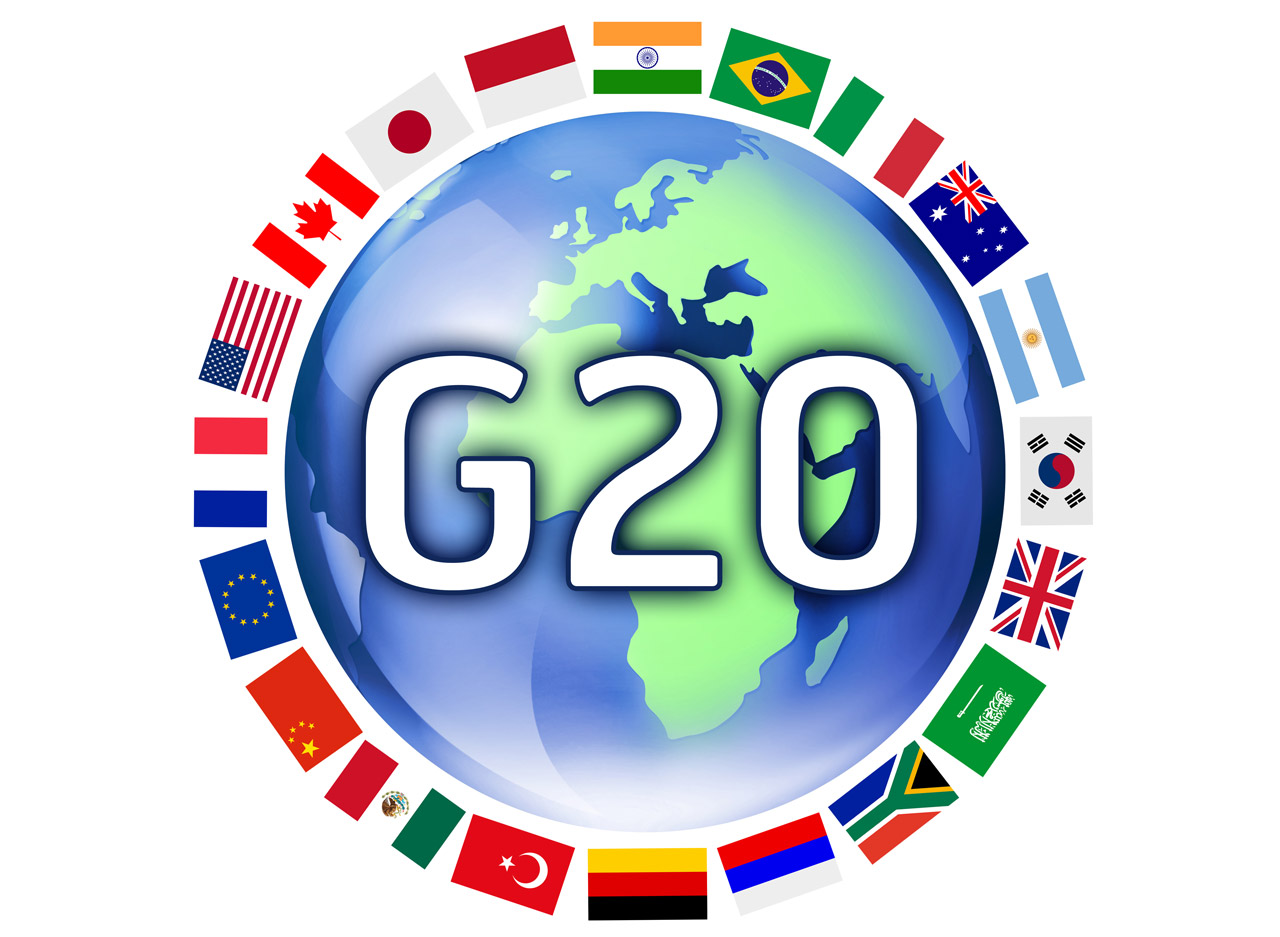G20 Summit

date: 31/07/2019
The G20 Summit in 2019 took place on 28-29 June, under the Japanese Presidency in Osaka, the second largest city in Japan. The overall global context was difficult, characterised by trade tensions and an outlook on the global economy that was not very optimistic. From a media point of view the summit was overshadowed by bilateral meetings such as those between the US and Chinese leaders. The EU was nonetheless able to give a positive message with the announcement at a joint press conference of European, Brazilian and Argentinian leaders, of the EU- Mercosur free-trade agreement. The European Commission's Almorò Rubin De Cervin, who attended the summit, explains in more detail.
Main issues
The summit came fairly soon after the previous summit, which took place in Buenos Aires at the end of November 2018. This is because the Japanese prime minister wanted to use the G20 Summit as a showcase for the incoming national elections. The next summit will be chaired by Saudi Arabia and will take place in the autumn of next year (likely in November 2020, after the US presidential elections).
From the specific perspective of financial services, three main issues in the G20 Leaders' Declaration deserve special mention: financial reform; sustainable finance; and crypto-assets.
Financial reform
On financial reform, the G20 confirmed its commitment ‘to the full, timely and consistent implementation of the agreed financial reforms’. It remains important to confirm this commitment, in particular in the context of US disengagement from the multilateral approach. The G20 tasked the financial stability board (FSB) with continuing to evaluate the effects of reforms. It also stressed the need to continue monitoring emerging risks. In relation to non-bank financing, the Leaders' Declaration promises ‘to continue to identify, monitor and address related financial stability risks’. However, there is no mention of specific vulnerabilities. Finally, the Declaration welcomes ‘the work on market fragmentation’ carried out by the FSB and the International Organization of Securities Commissions (IOSCO) and says that it will address its unintended negative effects, including through regulatory and supervisory cooperation.
Sustainable finance
On sustainable finance, the G20 is in a difficult position because the US and Saudi Arabia are not keen supporters of any international work on this topic, beyond the ongoing work on disclosure. As a result, it was only possible to include in the Declaration that ‘mobilising sustainable finance and strengthening financial inclusion are important for global growth’ and that the G20 ‘welcome private sector participation and transparency’ in these areas.
Crypto-assets
The summit followed soon after the announcements by Facebook and other partners of the possible creation of a new global crypto-asset as a stable-coin. So there was a good discussion on how the G20 should react to such an initiative. It was agreed that since the initiative was too recent and its contours are still in part undefined, it was more appropriate to avoid any direct reference to it. The Declaration however makes clear that ‘while crypto-assets do not pose a threat to global financial stability at this point’, the G20 leaders ‘are closely monitoring developments and remain vigilant to existing and emerging risks’. The G20 also tasked the FSB and other standard-setting bodies with advising on additional multilateral responses as needed. The topic will now be discussed at the G7 Finance Ministries meeting in Chantilly, France and at the G20 Finance Ministers Meeting in October in Washington.
Overall the summit ended positively, with a long Declaration covering a wide range of issues. After two summits in close succession, there is now a 17-month period before the next G20 summit, with a number of questions remaining for instance regarding US engagement, the interests of the next Saudi presidency and the challenging global economic and trade environment. When it comes to financial stability and financial services more generally, however, the multilateral context will continue to be ensured by the work of the FSB and the other standard-setting bodies.
Read more on the G20
